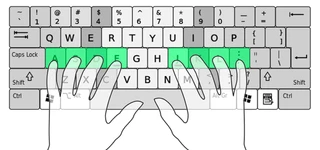Lately, the tech world has been buzzing with headlines like:
“DeepSeek The Model that broke the market” – Finshots
“DeepSeek: The Chinese AI app that has the world talking” – BBC
The internet is in a frenzy, and discussions are heating up. Almost overnight, DeepSeek has emerged as the new AI sensation, making waves across the industry. The sudden rise of this AI powerhouse has sparked a fierce rivalry, capturing the attention of tech enthusiasts and experts alike. Let’s learn why that has happened.
Introduction
In the vast expanse of artificial intelligence, two names are at the forefront of discussions, i.e., DeepSeek and ChatGPT. From different philosophies and for different purposes, these tools are transforming industries, provoking debates, and redefining what AI can do. But where did they come from, and why does their rivalry matter? Let’s rewind to their origins before diving into their battle for supremacy.
ChatGPT: The People’s AI

Launched in November 2022 by OpenAI, ChatGPT was the first AI chatbot to explode into the mainstream, making advanced language models accessible to the masses. Built on the GPT (Generative Pre-trained Transformer) architecture, it was trained on a whopping 45 terabytes of textbooks, articles, forums, and more, to mimic human conversation. Its mission was to democratize AI, offering everything from poetry writing to coding help. Its viral success made it a household name within two months with over 100 million users.
Key Milestones:
- GPT-3.5: The backbone of ChatGPT is known for creativity and versatility.
- Free Access: Game-changer for students, writers, and curious minds.
- Partnerships: Integrated into Microsoft’s Bing, GitHub Copilot, and more.
DeepSeek: The Specialist’s Secret Weapon

Emerging in 2023, DeepSeek took a different path. Developed by a team of engineers and data scientists frustrated by the limitations of general-purpose AI, it was designed to excel in regulated, high-stakes industries like healthcare, finance, and law. Unlike ChatGPT’s jack-of-all-trades approach, DeepSeek focused on three pillars:
- Contextual Intelligence: Remembering conversations like a human.
- Hyper-Security: Protecting sensitive data with military-grade encryption.
- Lean Efficiency: Cutting costs through curated datasets and open-source tools.
Key Milestones:
- Industry-First Design: Healthcare, banking, and legal sectors.
- Real-Time Learning: No human intervention required.
- Cost Innovation: Developed for ~5M, one-tenth of ChatGPT’s budget.
Clash of Philosophies: ChatGPT vs. DeepSeek
ChatGPT and DeepSeek represent two extremes of the AI coin:
- ChatGPT is the Swiss Army knife: versatile, creative, and user-friendly.
- DeepSeek is the scalpel: precise, secure, and laser-focused on niche needs.
While ChatGPT democratized AI for everyday users, DeepSeek targeted experts who needed much more than an interesting text-generating capability. Imagine ChatGPT as your friendly neighborhood librarian and DeepSeek as the expert surgeon. Both are essential in their own different ways.
However, “The future belongs to those who see possibilities before they become obvious.” – John Sculley
What did DeepSeek Invent?
DeepSeek and ChatGPT serve different AI purposes, much like a specialist surgeon versus a general physician. This is how versatile and flexible ChatGPT is for creative writing, coding, and casual conversations. a friendly librarian ready to help with everything from poetry to programming. On the contrary, DeepSeek is a precision tool designed for high-stakes industries such as healthcare, finance, and law. Imagine a doctor who thoroughly remembers your medical history and offers highly personalized advice.
While ChatGPT thrives on accessibility and broad knowledge, DeepSeek focuses on security, contextual intelligence, and cost efficiency. For instance, a bank can use DeepSeek to find transaction patterns and detect fraud with high accuracy, while a student might depend on ChatGPT to summarize a research paper. Ultimately, DeepSeek is for professionals requiring precision, and ChatGPT is ideal for general users who seek creativity and ease of use. Let’s now break it down:
The Game Changer
DeepSeek did not only create another chatbot; instead, it created an AI that thinks like humans, not a robot. And here’s where it stands apart:
Contextual Mastery: The Memory That Endures
Imagine chatting with a friend who remembers every detail of your last conversation, even months later. DeepSeek does exactly that. Unlike ChatGPT, which occasionally suffers ‘memory lapses’ in long dialogues, DeepSeek uses advanced algorithms to retain context over hundreds of interactions. For example, customer service can resolve a complaint spanning multiple emails without asking repetitive questions.
Hyper-Personalization: Your Digital Twin
DeepSeek adapts to your preferences like a tailored suit. If you’re a lawyer, it learns to draft contracts in your firm’s tone. If you’re a doctor, it prioritizes medical jargon. Over time, it becomes a reflection of you.
Military-Grade Security: Guarding Secrets
DeepSeek locks data in a safe such as Fort Knox, making it an industry favorite in finance and healthcare. For example, a bank using DeepSeek can safely analyze customer spending patterns without risking a data breach.
Cost Efficiency: Doing More with Less
DeepSeek’s thin training model costs just ~5 million to develop, whereas ChatGPT’s costed 12 million+ budget. This was possible by using curated datasets and open-source frameworks.
ChatGPT’s Limitation: Short-Term Memory Loss
While ChatGPT is good at short, creative exchanges as writing a poem or explaining a concept, it has a hard time maintaining continuity. Ask it to elaborate on a project plan over five conversations, and it might forget the key details.
ChatGPT’s Strength: Swiss Army knife of AI
ChatGPT is great for brainstorming, writing blogs, or coding help. But it’s a ‘one-size-fits-all’ tool. Want it to mimic your writing style? You’ll need to manually prompt it every time.
ChatGPT’s Trade-Off: Privacy
ChatGPT focuses on user privacy, but in doing so, it gives up the narrower focus on the niche security layers of DeepSeek.
How Did DeepSeek Pull This Off? The Secret Sauce
DeepSeek’s edge isn’t magic, it’s science. Let’s demystify the tech:
Smarter Algorithms: Context Retention Networks
Traditional AI models (such as ChatGPT) process conversations linearly and each response is based on immediate input. DeepSeek’s ‘Context Retention Networks map entire dialogue histories, creating a web of connections. It is like ChatGPT reading a book one page at a time vs. DeepSeek analyzing the whole chapter.
Leaner, Meaner Data: Quality Over Quantity
ChatGPT has been trained on 45 terabytes of internet text from Reddit threads to Shakespeare. DeepSeek, on the other hand, utilized much smaller but more niche datasets including:
- Legal documents for law firms.
- Medical journals for healthcare providers.
- Financial reports for banks.
This reduces ‘noise’ and allows for more precision in a specialized area.
The AI That Never Sleeps
DeepSeek self-updates in real-time. ChatGPT relies on manual updates every now and then from textbooks, live news feeds, etc.
Budget-Friendly Build: Open-Source Ingenuity
DeepSeek has cut costs by 30% using technologies like TensorFlow and PyTorch. Its modular architecture also allows businesses to only pay for features used like a streaming service subscription.
The New Possibilities: Industries Transformed
DeepSeek’s tech may be cool, but what it is, more importantly, is revolutionary. Here’s where it is throwing waves in:
Healthcare: Saving Lives with Precision
DeepSeek analyzes patient histories to predict health risks. For instance, it identified a rare drug interaction for a Boston hospital that human doctors had overlooked. ChatGPT is helpful for general medical FAQs but does not have this kind of depth.
Finance: Fraud Detection on Steroids
Banks use DeepSeek to map transaction patterns over months, spotting anomalies invisible to humans. One European bank reduced fraud losses by 40% in six months.
Customer Service: Fixing Problems Before They Escalate
A telecom giant uses DeepSeek to resolve 80% of complaints whether about billing or network issues-without human agents. On the other hand, ChatGPT can only handle the simplest questions like ‘reset my password’, but more complex issues are beyond it.
Education: Tutoring That Adjusts
DeepSeek adjusts learning plans according to students’ needs. If a student is weak in algebra, the pace is slowed, and visual aids are added. Meanwhile, ChatGPT explains a concept well but doesn’t track progress through time.
More Information: ChatGPT vs DeepSeek
Cost, Data, and Ease of Use: The Nitty-Gritty
| Factor | DeepSeek | ChatGPT |
| Development Cost | ~$5M (optimized training) | ~$12M (massive dataset licensing) |
| Dataset Focus | Industry-specific, smaller, curated | Broad, diverse, internet-scraped |
| Ease of Use | Plug-and-play APIs for enterprises | User-friendly for casual/creative use |
| Training Speed | 2-3 weeks (targeted updates) | 6-8 weeks (full-model retraining) |
The AI Future: Are They Collaborators or Competitors?
Experts show us three different pictures:
DeepSeek Would Dominate Over Regulated Niche Areas
Law, medical science, and finance would be far more attracted by DeepSeek as it is pretty accurate and it’s safe. AI lawyers can start drafting contracts easily or AI auditors can detect tax leakages without any hassle.
Creativity Boom of ChatGPT for Marketing and Entertainment
ChatGPT is already a scriptwriter for Netflix shows and is also writing adverts for Nike ads. Therefore, Future tools could combine the imagination of ChatGPT with the IQ of DeepSeek to create something extraordinary. Imagine an AI that writes a novel and changes its plot according to reader feedback.
But for ChatGPT to Compete, it needs to:
- Enhance Long-Term Memory: Integrate context retention tools.
- Add Industry Customization: Offer niche modules, like ChatGPT for Doctors.
- Enhance Security: Collaborate with cybersecurity firms like Palo Alto Networks.
DeepSeek vs ChatGPT: Output Examples
Having said all of these things, now it is time to just see the outputs presented by both of these platforms. For that, we asked the same question to both of these AI platforms, and here is what they had to say:
The question: Just give me a one-paragraph answer for why India is famous.
ChatGPT:

DeepSeek:

From the outputs, we can clearly see how well DeepSeek has presented the answer. It has understood the question really well, analyzed it thoroughly, searched through the internet for the best possible answer, and presented with a comprehensive answer.
Well, on the other hand, ChatGPT’s answer is also great. It is short, and concise, yet covers all the important pointers.
DeepSeek vs. ChatGPT: Summing Up
Let’s cut through the hype:
Choose DeepSeek if:
- You work in healthcare, finance, law, or any industry that requires precision and accuracy.
- Data privacy is a must.
- You need AI that adapts to your changing needs.
Use ChatGPT if:
- You are a writer, teacher, marketer, or content creator.
- You require a flexible, easy-to-use tool.
- Budget is tight (ChatGPT’s free version is powerful).
Both tools are game changers, but neither is better. It’s like asking, ‘Should I buy a sports car or an SUV?’ The answer depends on where you’re driving.
AI is no longer a luxury, it’s a necessity. Whether you are a CEO streamlining operations or a student taking exams, these tools are your keys to the future. The question isn’t Who’s winning? but how will you use them?
Namrata is a skilled content writer with an expertise in writing marketing, tech, business-related topics, and more. She has been writing since 2021 and has written several write-ups. With her journey with Techjockey, she has worked on different genres of content like product descriptions, tech articles, alternate pages,... Read more





























